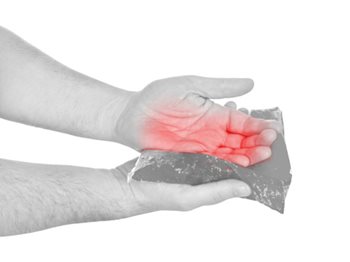Healthy Living
When Urgent Care May Be Right for You
Perhaps you’re on vacation, visiting relatives in a far-off state, and you break out in an unusual rash. Or it’s late Saturday night and you have a raging ear ache that will not go away with OTC pain relievers. Your primary care physician, who knows your health history better than anyone, may not be available. What should you do?
You may consider visiting a nearby urgent care center. It’s not recommended for long-term care. That responsibility should be put in the hands of your personal primary care provider who manages your chronic conditions and works with you on prevention strategies for your health. There is no substitute for the strong relationship you’ve built over time with your own doctor. But urgent care can serve a purpose when you require treatment for a non-life-threatening condition and can’t or don’t want to wait until you can secure an appointment with your own physician.
It’s important to know when urgent care is right for you, as well as its limits. What an urgent care center can do is somewhat similar to what a doctor’s office can, although the scope is significantly more limited because there is no ongoing care, no ongoing relationship.
Urgent care centers can, though, offer prompt evaluation and treatment for a variety of conditions that do not require an emergency room. Most are open every day, including holidays, and they are staffed by physicians. Imaging services are often available. The wait time also is much less than in an emergency room.
If you’re wondering where you should turn in lieu of your own doctor, consider this list of what can be treated in an urgent care center setting:

- minor injuries
- minor lacerations
- eye redness or irritation
- minor fractures (fingers, toes)
- urinary tract infections
- upper respiratory tract infections
- fever or flu
- sore throat
- skin rashes
- skin infections
- sprains and strains
If you have been seen at an urgent care facility, you should communicate with your own primary care provider about the outcome so they are aware of the diagnosis and treatment and can record that in your personal medical records.
Just as urgent care is not a substitute for consistent treatment provided by your personal physician, it’s not a substitute for emergency room care. Conditions that are life-threatening should be taken care of immediately at an ER, which provides more comprehensive, higher-skilled care.
More serious conditions, such as these, need to be evaluated in an emergency room:
- deep cuts or bleeding that won’t stop
- large bone fractures
- problems related to pregnancy
- knife or gunshot wounds
- coughing or vomiting blood
- chest pain
- suspected stroke or heart attack
- difficulty breathing
- severe burns
- loss of consciousness
- seizures
- abdominal pain.

Didem Miraloglu, M.D., is an instructor of Clinical Medicine in the URMC Center for Primary Care at the University of Rochester Medical Center. Her practice, part of URMC Strong West, is located in Brockport on the former Lakeside Hospital campus.

